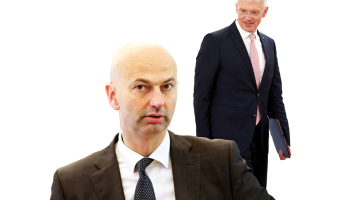
Foto: Emīls Desjatņikovs, F64
On 11 September the American, British, German, Irish, Norwegian and Swedish Chambers of Commerce jointly organized a pre-election debate where each of the six politicians present were asked how their parties would enhance the competitiveness of Latvia and how they would stimulate more foreign investment.
Almost universally there is an obsession with foreign investment. True, it can bring technology and new business practices that a country does not already have and whereas I am certainly happy with foreign investment, I am also happy with investment from domestic sources since overall investment is of importance for the country. And such investment is currently at an unsatisfactory level, c.f. the following graphs, thereby harming future growth.
Figure 1: Investment (Gross Fixed Capital Formation) as a share of GDP, 1995 - 2013














